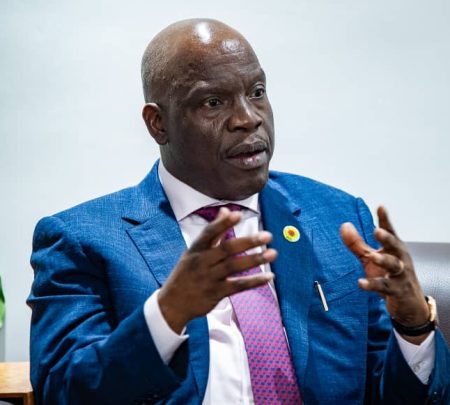
New York — Oil prices rose over 4% on Monday, reversing an early fall to multi-year lows as hopes of a deeper cut in output by OPEC and stimulus from central banks countered worries about damage to demand from the coronavirus outbreak.
Brent crude futures gained $2.23, or 4.5%, to settle at $51.90 a barrel. The session low of $48.40 was its lowest since July 2017.
U.S. West Texas Intermediate (WTI) crude futures rose $1.99, or 4.5%, to settle at $46.75 a barrel. The session low of $43.32 a barrel was the lowest since December 2018.
It was the first gain for both benchmarks after six sessions of losses triggered by worries about the coronavirus, which has killed nearly 3,000 people and roiled global markets.
Shares steadied globally on Monday. Last week, equities had their biggest rout since the 2008 financial crisis, which led markets to price in policy responses from the U.S. Federal Reserve to the Bank of Japan, which indicated it would take steps to stabilize financial markets.
“We feel that much of today expansion in risk appetite related heavily to indications of Central bank accommodation,” Jim Ritterbusch, president of Ritterbusch and Associates, said in a report.
Separately, the International Monetary Fund and the World Bank said on Monday they stood ready to help member countries address the human and economic challenges of the fast-spreading coronavirus outbreak, including through emergency funding.
With fears the virus outbreak will erode oil demand, several members of the Organization of the Petroleum Exporting Countries (OPEC) are mulling an additional production cut in the second quarter.
The previous proposal was for an additional output cut of 600,000 bpd.
Russian Energy Minister Alexander Novak said Moscow was evaluating a smaller oil production cut proposal made by OPEC+, adding it had not received a proposal for deeper cuts.
OPEC oil output fell in February to the lowest in over a decade as Libyan supply collapsed due to a blockade of ports and oilfields and Saudi Arabia and other Gulf members overdelivered on a new production-limiting accord, a Reuters survey found.
Oil prices have fallen more than 20% since the start of the year despite OPEC+ curbing output 1.7 million bpd under a deal that runs to the end of March.
“Inaction by OPEC+ would likely trigger another potentially severe bout of selling,” analysts at Fitch Solutions have said.
Data released over the weekend by China, the world’s top energy consumer, dragged on oil prices early in the session.
Factory activity in the country shrank at the fastest pace ever in February as the coronavirus hit the economy.
Follow us on twitter
- Reuters



